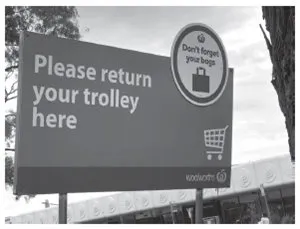![]()
![]()
CHAPTER 1
Introduction
For so long, I heard those words, and yet they never really “clicked.” I read so many books and took so many courses. I tried affirmations, and they worked for a limited time. I tried them all. I listened to the promises. I read the secret behind “the secret” – that there is a magic way to manifest the love of your life; the car of your dreams, how to win the lottery – how to “have it all.” The manifesting gurus insist there is a specific way to visualise, to meditate, to dream, to stand, to use affirmations, to use music, etc., etc., etc. On and on it goes. There are thousands of books, tapes, CDs, and techniques available, some of which are magnificent and most of which work – temporarily.
This book is going to try to give you some clues about why all those wonderful techniques you tried – and which may have worked for you in the beginning – are forgotten when you get back into “normal” life so you are back to where you began. All of them have failed you, and they will continue to fail you because what they forget to mention is the underlying silent hackers that plague us all. These silent hackers are quietly playing havoc in our lives.
Silent Hackers
One of those silent hackers is the language we use. We have been taught to speak negatively. Yes, from the very beginning of our lives, one of the first words we hear is “No!” Then, the next thing we become aware of is “don’t do this” “don’t do that.” It is in our everyday language. We say the words every minute of every day without appreciating what we are saying. We never hear what we are saying. You receive an email, see advertising, or a sign which implores you to “don’t miss” this; or “you don’t want to miss” that; “don’t forget such and such” or “don’t park here.”
All of this language is spoken or written unconsciously. Have you ever stopped to consider what these messages are really saying to you, and more importantly, how you “hear” them? Do you realise how much power is contained in the words you write and say? Have you ever stopped to consider the power of the thoughts you think and how the words you speak impact yourself as well as others?
In my life, I have become acutely aware of the impact of the words which come out of my mouth and those I write. I have become conscious of the thoughts I am thinking. In the past, I was unconscious, walking around speaking and saying things which I expected people to understand, and was surprised when I got a completely different reaction to the one expected or more commonly blank looks of bewilderment.
Recently, I have been working with a 13-year-old who is considered “on the spectrum.”1 He is an absolute delight to speak with, and we connected when I showed him the following sign.
Photo: Woolworths Chirnside Park, Victoria
He was immediately able to identify the mixed messages displayed. One is a positive message “Please return your trolley here”; the other one is confusing – does it mean “remember to take your bags INTO the supermarket” or “remember to take your bags out of the trolley?”
People “on the spectrum” read this sign literally. They read the words “park your trolley here” and “forget” your bags. They are unable to process the negative word “don’t.” They will process the word “forget” before they process anything else.
An interesting example on the subject of working with children on the spectrum occurred for my daughter-in-law, who is a Grade 2 teacher. She had a young child at school who was removed from the classroom because he was disruptive. Another teacher took the child to her office and said the child could play with a ball, as a means to distract and calm him. The child heard the words “you can play with the ball” to mean he can play with the ball in the hallway as well as in the teacher’s office; in fact, he can play with the ball anywhere he likes. He could not comprehend that he should only play with the ball in the teacher’s office, because that was not what she said. He took her literally when she said, “you can play with the ball.” If the teacher’s aim was to calm the child, it would have been better for the child to be taken to the sensory room so he could calm himself by reading or listening to music.
What is the real intent of your communication? When you speak, are you speaking consciously? What are you manifesting by the words you are saying and the thoughts you are thinking? Are you like the teacher above who told the child to “play with the ball” when she meant for him to play quietly with the ball in her office?
Just for a moment, remember the words your mother or father said to you as a child. “It’s not your turn to speak”; “don’t cross the road”; “don’t run”; “children should be seen and not heard”; “don’t make a mess with your ice cream”; “don’t be nervous”; “you’ll get hurt if you do that”; “don’t leave the lights on”; “don’t be afraid”; “don’t cry”; “don’t get out of bed”; “don’t move”; “don’t forget” “don’t bother me right now”. How have those words affected you?
How did the words your teachers spoke influenced the way you learn? “You are no good”; “you are a lazy good for nothing, useless son of a b****”; “don’t slam the door”; don’t listen to your negative talk”; “there’s not a creative bone in your body”; “you’re a loser”; “you’ll never be successful”; “you’ll never amount to anything”; “you’re no good at…”
How have the words your siblings said to you affected the way you react to them and to life? “You’re just a mistake”; “you’re a loser”; “you’re a dummy”; “you’re just a moron.”
How have all of these statements governed the way you deal with life? How have the words written in a text message damaged a relationship? How have the words spoken by a partner affected your self-esteem?
Words impact our lives every minute of every day. They have the power to lift us up or knock us down. They have the power to make us feel good or bad; they can boost our self-esteem or cause us to wallow in self-hatred. They have the power to elevate our belief in ourselves or to deplete the very fabric of our existence. There is a whole chapter following on The Secrets to Self-Esteem over Self-Harm.
The more we become conscious of the language we use, the more we understand the full force of those words. Have you heard people say “this is killing me?” Or what about “that drives me crazy,” or even worse, “this drives me insane?” I have caught myself being astounded at things a friend does and saying “You are insane”, or “You are crazy”. I now hear these words as criticism. There is an epidemic of Alzheimer’s and dementia in the world today. Is it possible that these diseases have been self-manifested? It is impossible, of course, for me to say, as I am not aware of any definitive research into language and disease, but it would be an interesting PhD. subject. In the chapter How What You Say Manifests Health or Disease, the aspect of language on health is examined a little further.
Unfortunately, most of us have no idea we are speaking in the negative. We, therefore, fail to realise how much this impacts our lives. We are limiting ourselves and each other.
When we say words such as “don’t be surprised,” what do we really mean? Am I supposed to be surprised, or astonished, or am I supposed to expect something… as in “don’t be surprised when I…”
When you say “don’t slam the door,” do you mean “please close the door quietly?” What about “don’t talk so loudly?” Do you mean “can you please talk softly?” Does “don’t make a mess in the kitchen” really mean “if you prepare something in the kitchen, can you please clean up after yourself” or “please leave the kitchen clean?” Does “don’t be afraid” really mean “you may experience a little fear, and just know that you are safe?” Or does it mean “I’m concerned about you?”
What about “I can’t tell yo...


